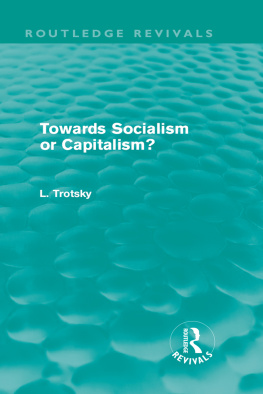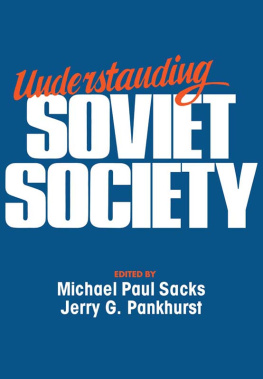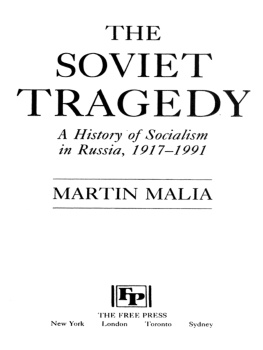
Routledge Revivals
Socialism, Social Welfare and the Soviet Union
First published in 1980, Socialism, Social Welfare and the Soviet Union examines the views of Marx, Engels and Lenin on what constitutes a socialist form of provision of social security, income, education, health and housing. The authors discuss the implementation of these ideas in the Soviet Union since the 1917 Revolution in the context of economic and political development, and describe the social services in the Soviet Union, assessing the extent to which the original ideas have been matched by reality. They also briefly survey the views of several East European academic writers on social policy, outlining some distinctive features of social policy in the Eastern bloc.
The authors general conclusion is that the Soviet Union has made great progress in social policy provision; from their research and from their visits in the course of writing this book, they show that the social services of the Soviet Union are as good as and, in some ways, more comprehensive than those of Western Europe. Equally important is their conclusion that a society in which the means of production and distribution are nationalised, and which makes a full provision of social services is not necessarily a socialist society. This book will appeal to students of sociology, political science and area studies.
Socialism, Social Welfare and the Soviet Union
Vic George and Nick Manning
First published in 1980
by Routledge & Kegan Paul Ltd
This edition first published in 2021 by Routledge
2 Park Square, Milton Park, Abingdon, Oxon, OX14 4RN
and by Routledge
605 Third Avenue, New York, NY 10017
Routledge is an imprint of the Taylor & Francis Group, an informa business
V. George and N. Manning 1980
All rights reserved. No part of this book may be reprinted or reproduced or utilised in any form or by any electronic, mechanical, or other means, now known or hereafter invented, including photocopying and recording, or in any information storage or retrieval system, without permission in writing from the publishers.
Publishers Note
The publisher has gone to great lengths to ensure the quality of this reprint but points out that some imperfections in the original copies may be apparent.
Disclaimer
The publisher has made every effort to trace copyright holders and welcomes correspondence from those they have been unable to contact.
A Library of Congress record exists under LCCN: 80040733
ISBN: 978-1-032-16857-9 (hbk)
ISBN: 978-1-003-25067-8 (ebk)
ISBN: 978-1-032-16863-0 (pbk)
Book DOI 10.4324/9781003250678
SOCIALISM, SOCIAL WELFARE AND THE SOVIET UNION
Vic George and Nick Manning
First published in 1980
by Routledge & Kegan Paul Ltd
39 Store Street London WC1E 7DD
9 Park Street Boston, Mass. 02108, USA and Broadway House, Newtown Road, Henley-on-Thames, Oxon RG9 1EN
Set in Press Roman 10pt by Columns and printed in Great Britain by Billing & Sons Limited
Guildford, London and Worcester
V. George and N. Manning 1980
No part of this book may be reproduced in any form without permission from the publisher, except for the quotation of brief passages in criticism
British Library Cataloguing in Publication Data
George, Victor
Socialism, social welfare and the Soviet Union. (Radical social policy).
1. Russia Social policy
2. Public welfareRussia
3. Communism and social policy
I. Title II. Manning, Nick III. Series
361.620947 HN525 80-40733
ISBN 0 7100 0608 X
CONTENTS
The primary aims of this book are, first, to explore the Marxist view of what constitutes socialist policy in the areas of income, social security, education, health and housing. This is done by looking at the works of Marx, Engels and Lenin and it forms the first section of each chapter other than the final. Second, to review the development of economic and social policy since the October Revolution of 1917 and to show the inter-relationship between the two. Most of .
Fourth, to examine in general terms the relationship between socialist social policy as conceived by contemporary Marxist writers and the political economy of the Soviet Union in order to highlight and summarise the extent to which the two are related and how this differs from the corresponding situation in advanced capitalist societies.
Both of us visited the Soviet Union in the course of writing this book and our visits helped to give some reality to our reading of secondary sources on which this book is largely based. There are many gaps in the available literature, both Russian and English, on Soviet social policy and this has inevitably limited our understanding of Soviet social policy in several ways. Nevertheless, the literature proved fairly adequate for our purposes. We were interested in painting a broad picture of the main issues raised above rather than a detailed examination of very specific or specialised concerns of Soviet social policy.
In the postscript of the second edition of their book SovietCommunism in 1937, Beatrice and Sidney Webb concluded their views of the Soviet Union as follows:
In 1933, when settling the title of the book-to-be, we chose Soviet Communism to express our purpose of describing the actual organisation of the USSR. Before publication in 1935, we added the query A New Civilisation? What we have learnt of the developments during 1936-1937 has persuaded us to withdraw the interrogation mark (B. and S. Webb, Soviet Communism: A New Civilisation, Gollancz, 1937, vol. II, pp. 1213-14).
These changes, in their views, are characteristic of the experiences of many who try to understand what has happened in the Soviet Union. It is not possible to look at the Soviet Union in a totally unbiased way. Ones values, attitudes and feelings colour ones views and conclusions in varying ways and degrees.
We started with a bias against the Soviet Union, largely because of the curtailment of civil and political liberties in the country. As our work progressed, however, we came to realise that if the political system represents the negative aspects of Soviet society, the economic and the welfare systems are its positive aspects. We concur with Lindbloms comments about eastern European societies, that in history many of mans greatest excesses are the other side of some great altruistic effort (C. Lindblom, Politics and Markets, Basic Books, 1977, p.5). Our book is concerned with the acceptable face of Soviet society, its economic and social welfare system which compares very favourably with that of welfare capitalist societies. Others have written at length about the unacceptable face of the Soviet Union and no doubt our readers will have come across some of these writings.
We would like to thank A. McAuley, L. Holmes, D. Smith and G. Andrusz who made valuable comments on different chapters. We owe particular thanks to Margaret Joyce and Susan Stobbs for typing several drafts of the manuscript. Parts of the book have been tried on an undergraduate course and we benefited from the discussion in seminars. We, of course, accept the final responsibility for the views expressed in the book.














